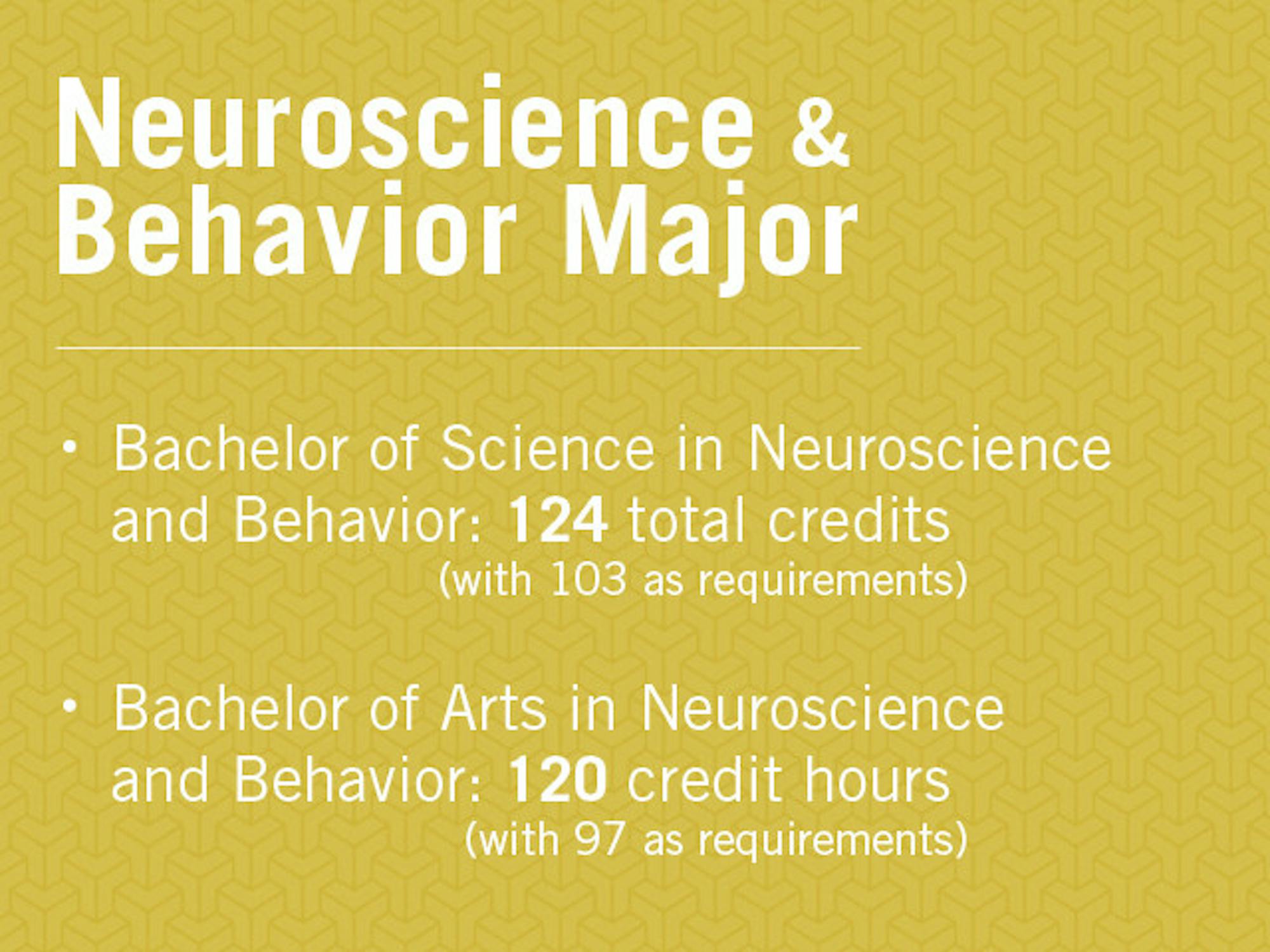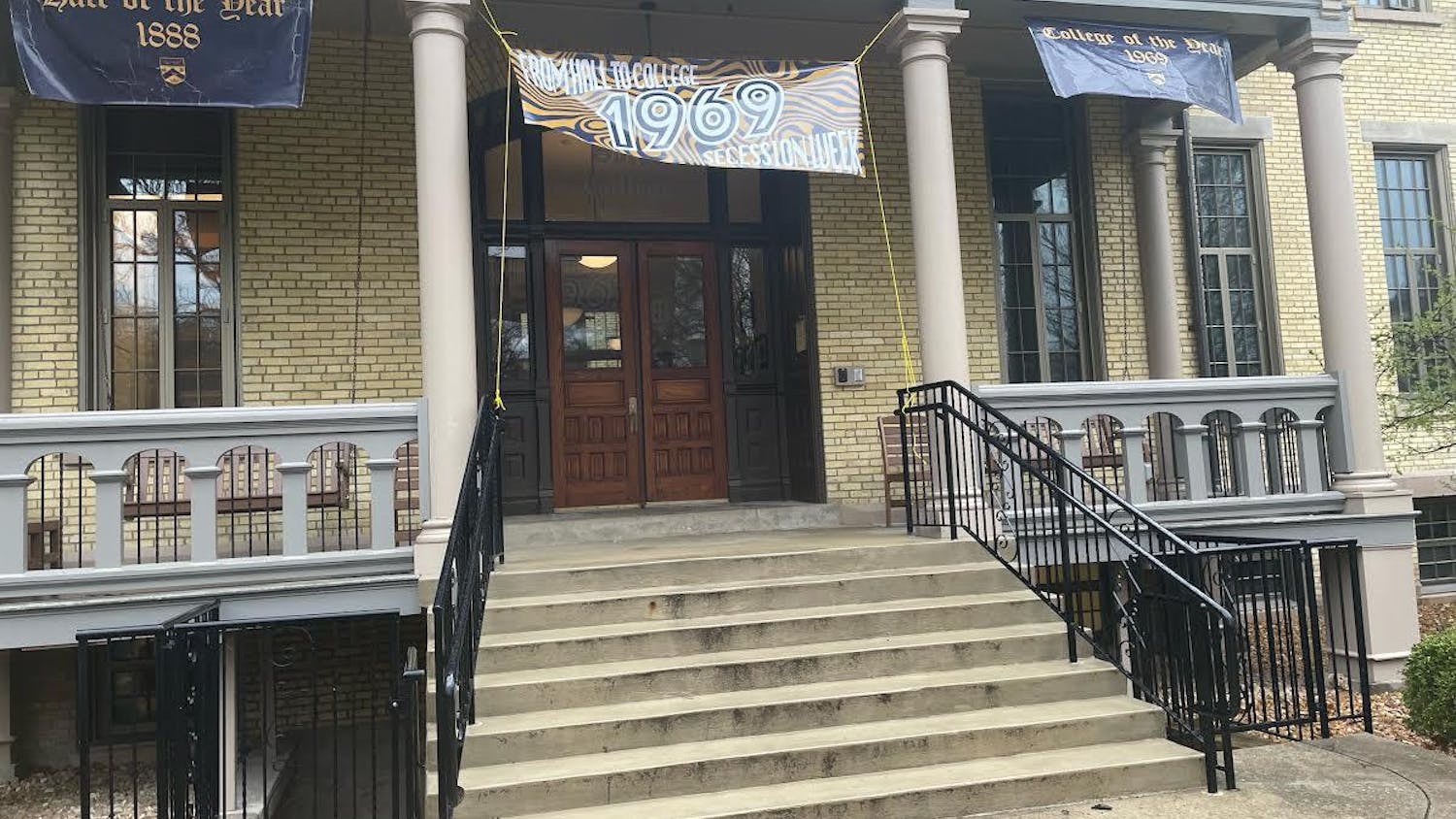The College of Science and the College of Arts and Letters launched a collaborative major in neuroscience and behavior this fall, said Sunny Boyd, professor of biological sciences.
Support among faculty and students contributed to the creation of the major, she said.
“The major was created because of a real swelling of excitement among the students and the faculty about embracing a new academic program in this area of neuroscience and behavior,” Boyd said. “It’s an area of science that really didn’t exist 30 years ago. It’s an interdisciplinary field, and so it's just growing in strength all the time.
"We had students clamoring for the new major, and we have more than 50 faculty that work in some area of neuroscience and behavior, so it was just the perfect time to do it.”
Either a Bachelor of Science (B.S.) degree or a Bachelor of Arts (B.A.) degree can be pursued through the neuroscience and behavior major, Boyd said.
“We have two versions of it. We have a Bachelor of Science version and a Bachelor of Arts version. They’re very similar except for the college requirements,” she said. “What we have ... is a molding of biology courses and psychology courses, about equal quantities, with a liberal sprinkling of other science courses and other humanities courses, like anthropology and philosophy.
“Neuroscience and behavior is ... incredibly broad. Some people might want to do really heavy science, like computational neuroscience, or brain imaging kinds of studies, so they would need a B.S. background. But other people might be interested in things like cognitive science or philosophy of mind. They would need to focus more in the arts and humanities."
The neuroscience and behavior major will prepare students for a variety of professional opportunities after graduation, Boyd said.
“We have a lot of students interested in the health profession. Both the B.S. and the B.A. are good fits for combining with health profession requirements. There’s also a ... strong track for graduate degrees in neuroscience and behavior, or even related degrees in fields of chemistry and biochemistry: drug development, for example. Also, on the other side of the spectrum, for people who are interested in things like clinical psychology or neuropsychology.”
Boyd said 45 students are currently enrolled in the major.
“We’re expecting at least 60, and maybe as many as 80,” she said. “The majority have been sophomores, but there are a lot of juniors that are switching in as well.”
Sophomore Morgan Widhalm said she was excited to learn of the development of the neuroscience and behavior major.
“All the other colleges I applied to had a neuroscience major and fully developed neuroscience research laboratories, so the development of this major was the last step to making Notre Dame the perfect college for me,” she said. “There is so much interest out there in this developing field, and I feel like students will rush to this major.”
Widhalm said she became interested in studying neuroscience because it allowed her to combine her interests in psychology and biological sciences. She is currently taking classes in genetics, organic chemistry and learning and memory.
“The science classes were a continuation of the biology curriculum that will count towards my B.S. in neuroscience and behavior, and the psychology class is my first step towards the interdisciplinary nature of the major,” Widhalm said. “As such, I would love to go to graduate school after college and hopefully conduct research on music cognition and music therapy for neurodegenerative diseases. This would combine my love of neuroscience and my love of music into one incredible life-long learning journey.”
Sophomore Kenneth Colon said he likes the flexibility offered by the neuroscience and behavior major.
“Since high school, I’ve been fascinated with the study of the brain, so I knew coming into college that I’d want to study biology or psychology, or both,” Colon said. “What I didn’t know was how much I would enjoy my other classes like theology and philosophy. By combining relevant classes from biology and psychology into one major, the neuroscience and behavior major allows me more freedom to take classes outside the major as well.”
There is also great flexibility within the major itself to allow for students to pursue individual interests, Colon said.
“For example, if I have an interest in computer science or applied mathematics, neuroscience lets me take classes in both those areas to count towards the major,” he said. “Additionally, you can also take courses in chemistry, philosophy and anthropology that count towards the major. For those with interest in research, like myself, up to six credits for the major can come from undergraduate research."
Colon said he is interested in attending medical school after graduation or doing a combined advanced degree program.
“Neuroscience and behavior really helps in fitting in all of my requirements for medical school, even more-so now with medical schools emphasizing the importance of behavioral sciences,” he said.












